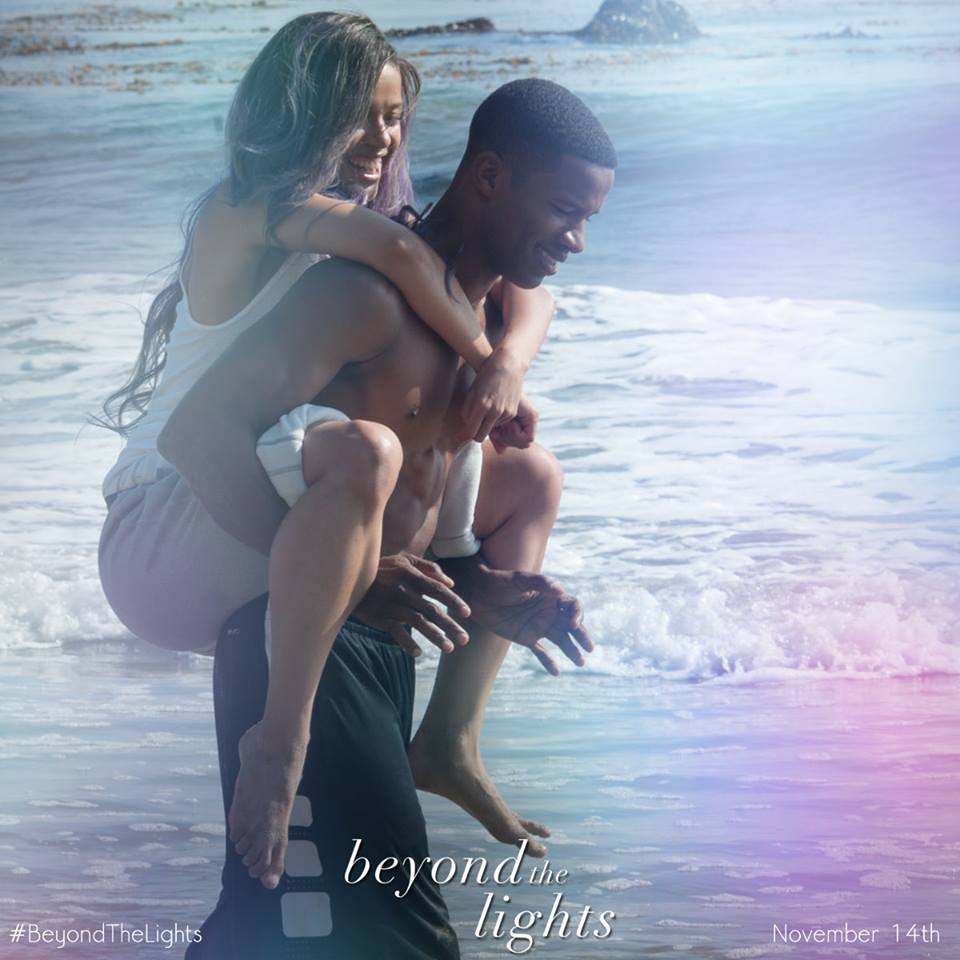“Beyond the Lights” swoops behind the flashing cameras and screaming crowds that come with fame and injects the hardships and humanity behind the facade of a seemingly perfect celebrity. Noni (Gugu Mbatha-Raw) is a superstar for her brilliant voice, but her perfect image in front of millions of fans isn’t truly her, for one sees Noni attempt to end her life by jumping off a balcony in the first few minutes of the movie.
Thankfully, the officer who is acting in as her bodyguard, Kaz (Nate Parker), grabs her hand as he sees her attempt to jump and convinces her to hang on until he pulls her back up to the balcony.
Kaz sees her in the most raw state possible, and he still chooses to care for her instead of writing her off as a cliché celebrity sob story.
The first scene of the movie is when Noni is entering her first talent show as a small child, and she sings “Blackbird” by Nina Simone excellently, but comes in second place.
Her mother, Noni’s only parent, storms her out and has her throw away the runner up trophy claiming only first place is worth anything.
The small, humble child the audience pities in the beginning scene is replaced by hypersexualization of a superstar.
With this insight into Noni’s roller coaster life, the audience watches the budding romance between her and Kaz, and how difficult it is to truly let someone in when perfection is the image that one has to constantly hold.
This movie could have easily fallen into the cliche of an unstable woman being swept off her feet, but it doesn’t. Instead, “Beyond the Lights” takes the audience on a journey not only of finding romance through pain, but also Noni’s path to finding and empowering herself.
A scene that depicts this is when Kaz is sitting with Noni on her bedroom floor and she brings out a box full of lyrics she never pursued. Kaz is blown away by the brilliance and true emotion in her own lyrics, and in this moment, Noni is opening a part of herself and her heart to his eyes, not just because she is swept off her feet, but because she truly is willing to break down her facade for him.
This movie goes beyond the cliché, chick-flick romance and opens up an understanding of how to love someone through all of their forms. No one is perfect, and that is portrayed in a realistic way by watching a celebrity break down and find her way back to who she truly is.
Celebrities are highly criticized and their private lives are broadcast for all to see; “Beyond the Lights” goes beyond a romance movie into a reflection of the image-based society we have today.
It shows the damage not only to those in the spotlight, but also to those who feel invisible, as shown by Noni’s single mother struggling to make a life for her and Noni on her own.
Another thing “Beyond the Lights” does well is the amount of diversity in the cast. Most stereotypical romance movies severely lack diversity, but “Beyond the Lights” embraces it and shows the reality of the challenges that come with it.
Overall, “Beyond the Lights” is a fresh new perspective on romance. Even though the audience can predict most of outcomes, the scenes are poignant and gripping throughout the entire movie: there are no unnecessary scenes.
Also, there are symbols and themes that are brought full circle within the movie to create a deeper meaning: an example is the song “Blackbird,” the first song Noni sings in front of a crowd, and the meaning of the lyrics of the song are woven through the plot of the movie and driven home with Noni’s last song being her own version of “Blackbird.”
With the majority of new movies being sequels, revivals or popular novel interpretations, “Beyond the Lights” is truly original and a great addition to the romance genre.



































